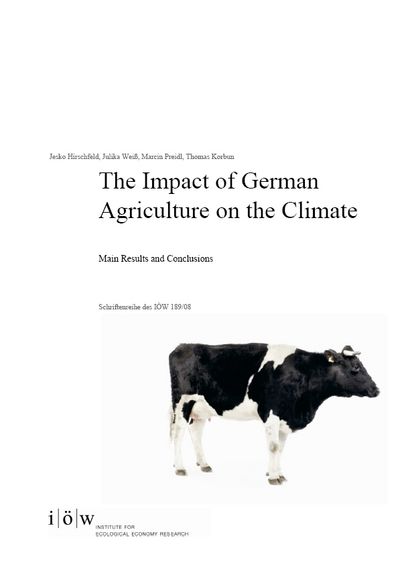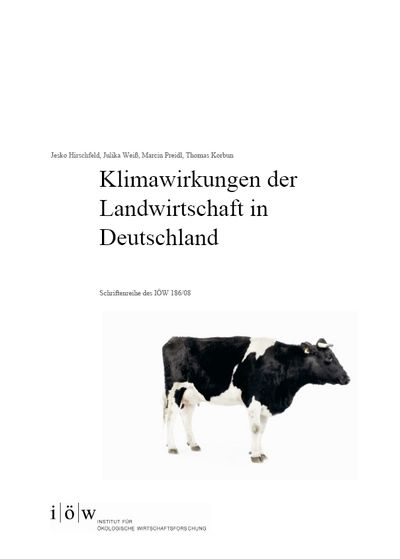Climate Impacts of Agriculture
The agriculture in Germany accounts for a significant degree of greenhouse gas emissions. In climate protection strategies (i.e. the energy and climate programme of the federal government), the contribution of the agriculture is usually still neglected. Therefore, the purpose of this study is the evaluation of climate impacts of the agricultural production in Germany, with respect to the most important agricultural products – wheat, pork, beef and milk. The research focuses on, to what extent conventional and organic farming are different in their climate impacts and which advantages and disadvantages can be found in different systems. The study will identify central starting points for achieving a more climate friendly agriculture in Germany as well as discuss potential synergy effects and conflicts with environmental and animal protection goals.




